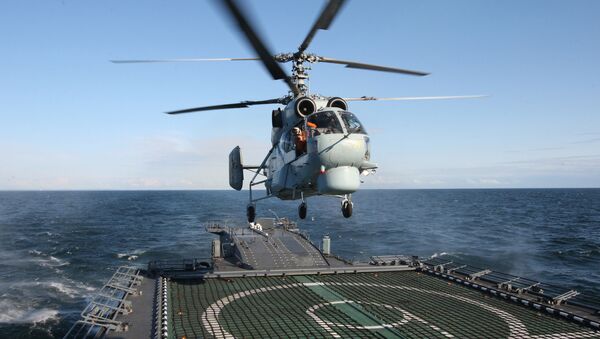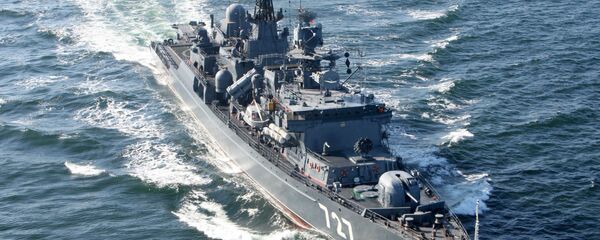The Russian Navy is primarily tasked with making sure that the so-called Syrian express, a supply line for Moscow's anti-Daesh campaign in the Arab country, is working, he explained. In other words, it is meant to protect Russian ships going in and out of Syria from a potential terrorist attack.
On June 17, the Arleigh Burke-class guided missile destroyer made a close and swift pass on Russia's Yaroslav Mudry frigate in the international waters of the eastern Mediterranean Sea. The Russian Defense Ministry described the incident as a "gross violation" of bilateral and international agreements.
USS Gravely's maneuver was "inappropriate, to put it mildly," expert on Russian military Viktor Baranets told TV channel Zvezda.
"Facts and documents are on Russia's side, while the US [resorted to] hollow words. … If the Pentagon says that the [Russian ship] violated rules then it should provide proof, but there is no proof," he added.
For their part, US defense officials claimed that it was in fact Yaroslav Mudry who was making an unsafe maneuver while USS Gravely was escorting USS Harry S. Truman, US Navy's aircraft carrier. The Russian frigate, according to this version, was trying to get closer to the US ships. However, the video of the incident seems to refute this theory: it clearly shows that the Russian frigate maintained a steady course.
Political analyst Rustem Safronov provided a broader context that could explain why the US guided missile destroyer performed the maneuver that Kramnik referred to as a show of force.
The United States appears to treat the Mediterranean as its own "backyard," he told PressTV, calling it Washington's strategic approach to the region. "The US Sixth Fleet felt very secure" in that area until the Russian Navy returned to the Med, he added. Now US policymakers appear to have trouble adjusting to the new reality.




